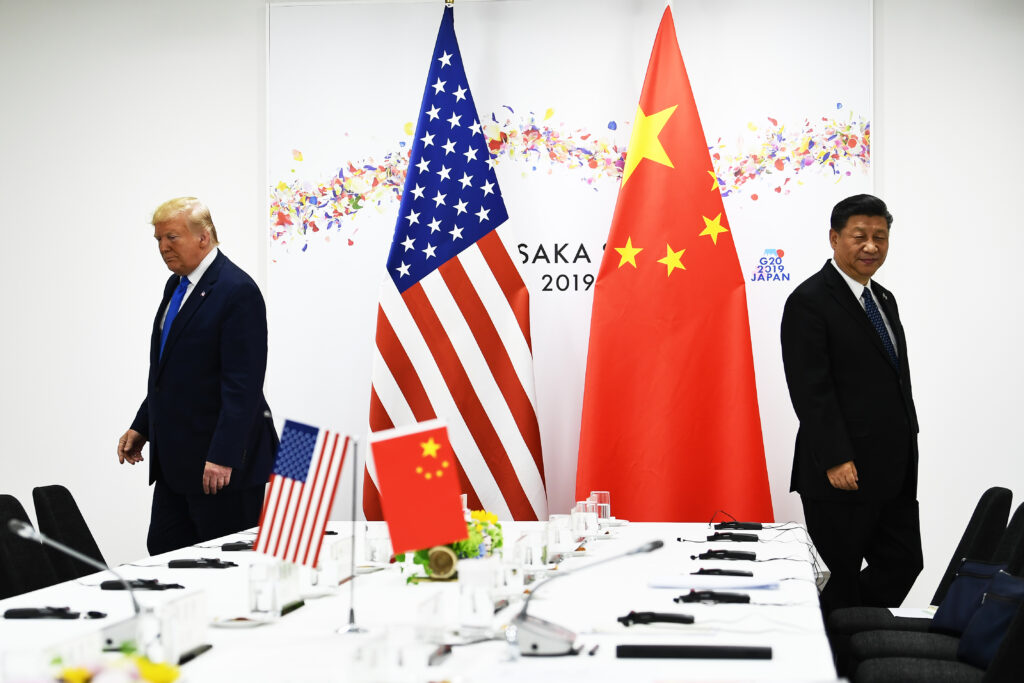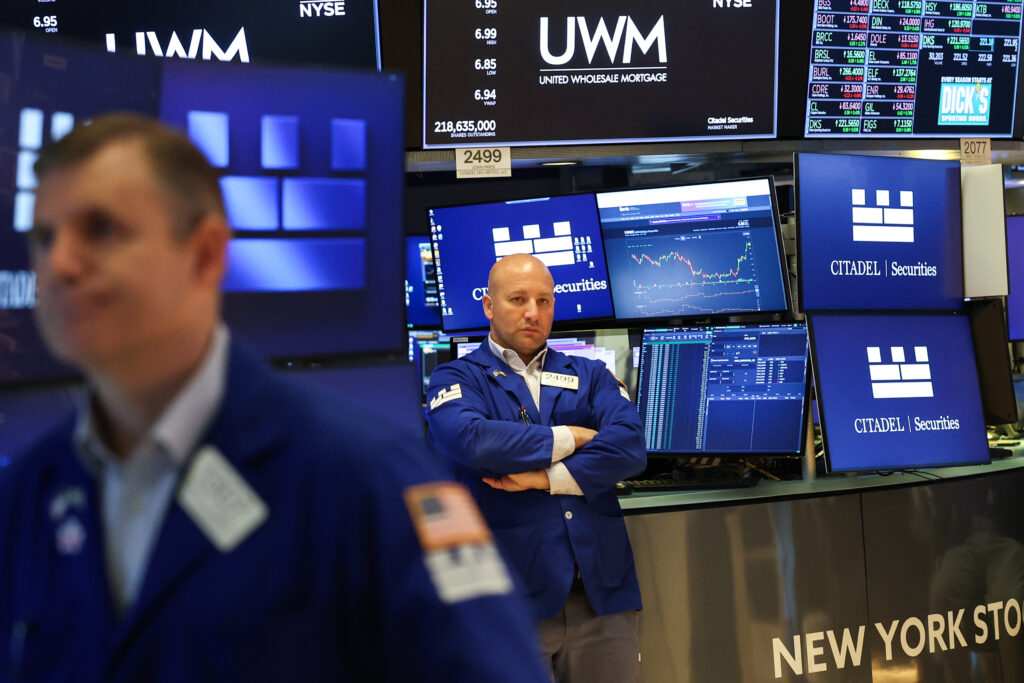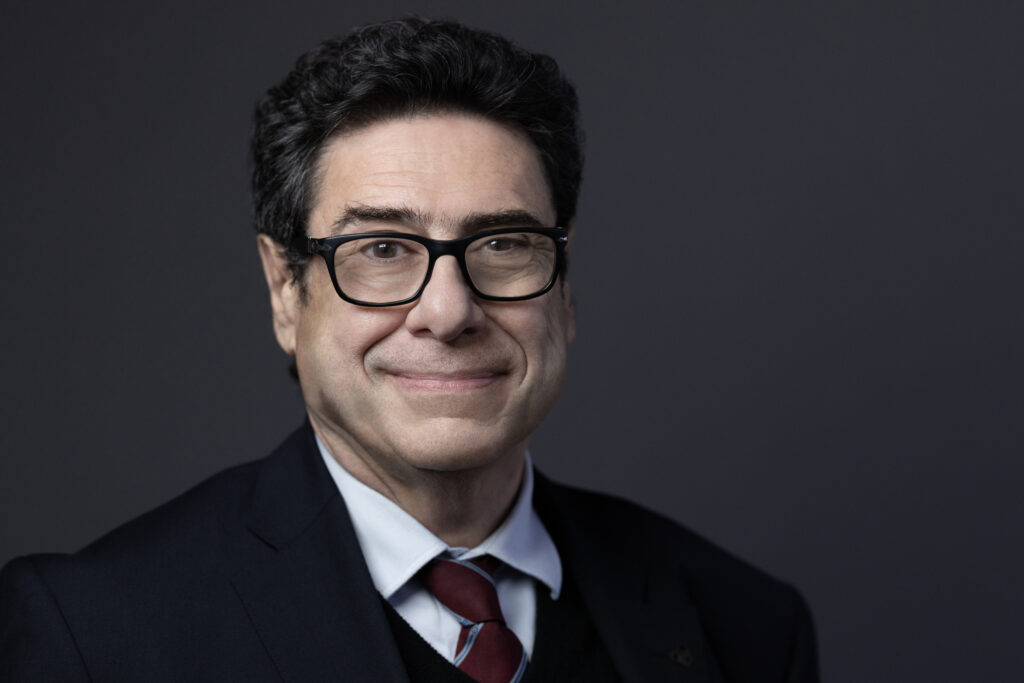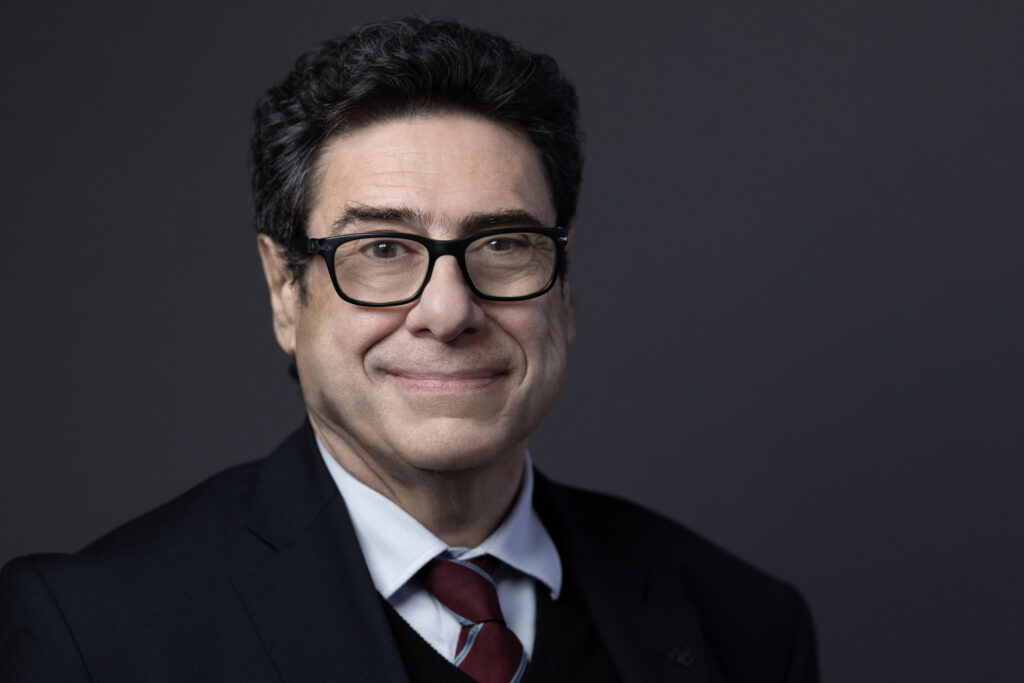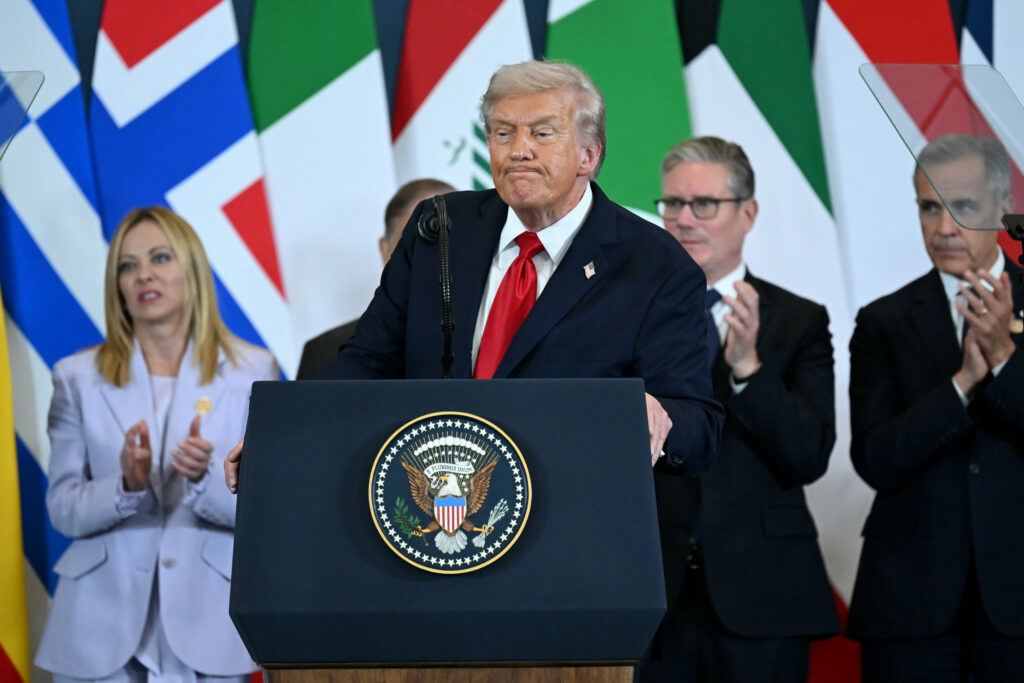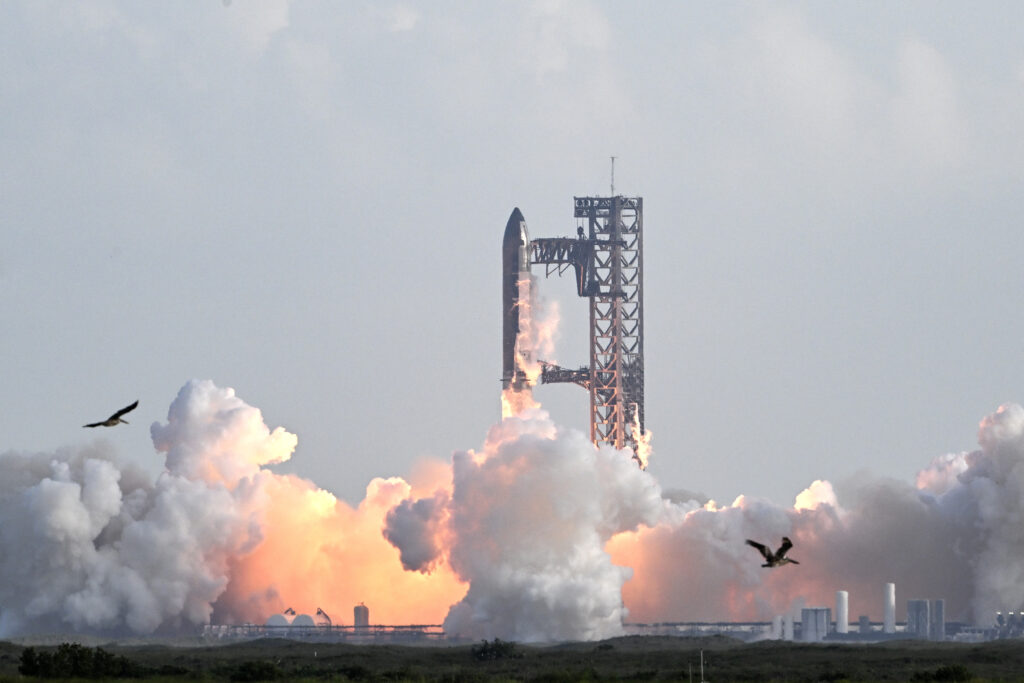Wall Street stocks bounce after Trump-fueled slide
Wall Street stocks rebounded Monday from steep pre-weekend falls as US President Donald Trump softened his posture on China following earlier threats of large tariffs.European stock markets made modest gains while Asia’s leading stock markets began the week in the red as they caught up with Wall Street’s sharp losses Friday. Gold reached a fresh record high thanks to its status as a safe haven investment.”Things have calmed down almost as dramatically as the flare up on Friday when Donald Trump threatened 100 percent tariffs on China,” said City Index and FOREX.com analyst Fawad Razaqzada.Trump, who on Friday announced “massive” tariffs due to Chinese curbs on rare earths exports, backed off that stance, saying in a Sunday social media post “it will all be fine,” and adding that the United States wants to “help” China.Major Wall Street indices that fell hard on Friday recovered a large chunk of their losses after Trump’s weekend pivot.”Trump came back and made it very clear that everything is going to be fine with China,” said Adam Sarhan of 50 Park Investments. “This looks like a relief rally.”The tech-rich Nasdaq led major US indices with a 2.2 percent gain, while the Dow piled on around 630 points to finish up 1.4 percent.”To be blunt, this is just such nonsense — the heaving to and fro on social media posts — but it is what it is, and the stock market seems to be fine playing the part of the puppet,” said Briefing.com analyst Patrick O’Hare.”Friday’s price action exposed how vulnerable market pricing is to developments that threaten the rose-colored outlook embedded in premium valuations,” he added.Chip giant Broadcom was a standout on Monday, soaring almost 10 percent after announcing a partnership with ChatGPT maker OpenAI that would provide 10 gigawatts in computing power, the firms said.In the past few weeks, under the leadership of CEO Sam Altman, OpenAI has signed deals involving huge investments in data centers and AI chips with US companies Nvidia, AMD, and Oracle, as well as with South Korea’s Samsung and SK Hynix.Earnings season gets underway in earnest this week, with reports from JPMorgan Chase, Goldman Sachs and other financial heavyweights on Tuesday.The IMF and World Bank’s semi-annual gathering of finance ministers and central bank governors also began in Washington on Monday.- Key figures at around 2010 GMT -New York – Dow: UP 1.3 percent at 46,067.58 (close)New York – S&P 500: UP 1.5 percent at 6,654.72 (close)New York – Nasdaq Composite: UP 2.0 percent at 22,694.61 (close)London – FTSE 100: UP 0.2 percent at 9,442.87 (close)Paris – CAC 40: UP 0.2 percent at 7,934.26 (close)Frankfurt – DAX: UP 0.6 percent at 24,387.93 (close)Hong Kong – Hang Seng Index: DOWN 1.5 percent at 25,889.48 (close)Shanghai – Composite: DOWN 0.2 percent at 3,889.50 (close)Tokyo – Nikkei 225: Closed for a holidayEuro/dollar: DOWN at $1.1568 from $1.1619 on FridayPound/dollar: DOWN at $1.3332 from $1.3360Dollar/yen: UP at 152.31 yen from 151.59 yenEuro/pound: DOWN at 86.77 pence from 86.98 penceBrent North Sea Crude: UP 0.9 percent at $63.32 per barrelWest Texas Intermediate: UP 1.0 percent at $59.49 per barrelburs-jmb/ksb
